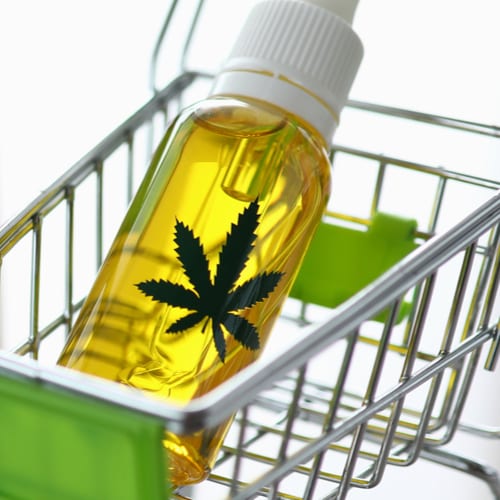
It’s been another week of up and downs as news from last week develops further. Oklahoma is still vying for signatures in a new ballot for recreational cannabis after some hiccups with the honesty of said signatures came up. Though they only legalized medical cannabis two months ago, the advocacy group Green The Vote is committed to getting the measure of the ballot, despite obstacles. Despite its long-standing relationship with cannabis, the Big Island of Hawaii still lacks licensed shops due to geographic and regulation issues. Local farmers are eager to get started as the economic boom will only benefit them if executed properly.
FDA-Approved Cannabis Medication Comes With Annual Cost of $32,000
It’s long-awaited with great anticipation that the FDA release its first approved cannabis-derived CBD medication, Epidiolex. As the time to de-schedule CBD for the medication’s release rolls around, however, the tide has changed quite a bit. Business Insider reports that the medication produced by GW Pharmaceuticals will retail for nearly $32,500 per year, averaging just under $2700 a month. The price was set to match similar epilepsy medication and what the product would cost to produce in 2016 when it was introduced.
The medicine will address two specific types of epilepsy in children and aims to give parents another option. The product contains no THC despite its derivative product; regardless, CBD is still a Schedule 1 substance claiming no medicinal value. The approval of the medication’s use forces the DEA to make a decision on whether or not to change CBD’s category. This week would bring about the halfway point on the time remaining to reschedule CBD.
Despite the high price tag, researches and FDA board members hope that this will bring more research to propel cannabis into more medical environments.
“This approval serves as a reminder,” Scott Gottlieb, the FDA commissioner, said in a statement shortly after the approval, “that advancing sound development programs that properly evaluate active ingredients contained in marijuana can lead to important medical therapies.”
Cannabis-Related Social Media “Shadow Bans” Continue
If cannabis marketing wasn’t already difficult enough, the controversial social media giant, Facebook, is cracking down on the still-federally illegal substance. Censorship of the cannabis industry has been a grey-land for much of the internet since the rules on what is not allowed is usually handled on a case-by-case basis. Cannabis is just another stickier case that most just stay away from. It is legal in a variety of states for recreational use but, still remains illegal on a federal level. Facebook has always been steadfast with their views on advertising federally illegal substance but, this new stance comes as a shock.
The act of ‘shadow-banning’ is very different from deleting or blocking a page. It, essentially, mutes the page from any new viewers unbeknownst to the Page Administrator. Existing patrons of the age will continue to see it and its content but newcomers will not be able to search directly for the page or discovery it organically.
Cannabis has already had struggles in the realm of advertisement considering it’s hazy past but, the bans from Facebook have been not only inconvenient but also in constant. Some government and regulatory agencies associated with cannabis have fallen on the list of ‘shadow bans’ as well, causing many to wonder what the guidelines of posting really are.
The crackdown on cannabis pages come after the long-standing controversial show, Info Wars, hosted by Alex Jones was banned from Facebook as well as a handful of other social media platforms.
Trump Decisions Affecting Cannabis Industry
Many of the high-grade cannabis vape pens and devices are made wholesale in China. President Trump’s tariff on Chinese products will affect the cost and availability of such products in the future. The tariffs will factor into overall cost and affect the state’s cannabis budget and market in the long run. In new markets, such as Nevada and California, the demand for recreational sales caused the price of cannabis products to be driven up. With the economic effect of higher trade taxes, the prices of the items could be slowly rising again. In markets like California where business are struggling to stay open with crippling regulations and a rampant black market, the end result is concerning.
Forbes reports that the taxes increase will put more work on business as they are forced to shop and negotiate better prices. Some markets may have no issue but newer ones and those in rural areas are more likely to see a drastic change.
“Cannabis companies are especially vulnerable to changes in their input costs…because they are not allowed to deduct business expenses from their taxes. That lowers their profit margins. A tariff on goods the companies use in daily operations will have a substantially negative impact on their earnings.”
-Kevin Hagan, Strategic Advisor on Cannabis Policy for Princeton Public Affairs Group
Denver Mayor Claims Benefit From Legal Cannabis
Though much is against cannabis, some are still changing their minds about the miracle plant. Denver Mayor, Michael B. Hancock admitted that regulating adult-use cannabis was being done effectively in the state and the industry was a “success.” The mayor’s words are encouraging but they are a different sentiment from his 2012 feelings about cannabis.
“This new report demonstrates Denver’s coordinated approach between multiple agencies to manage marijuana is working. We took on the daunting challenge of becoming the first major city in America to manage legalized recreational marijuana and we are having success. That’s because of coordination between Denver’s Excise and Licenses, Denver’s Fire Department, Police Department, Department of Public Health and Environment, Community Planning and Development, as well as our partners in other city agencies, the community from the marijuana industry and public health advocates.”
— Denver Mayor Michael B. Hancock, in the press release
He originally fought the bill for legalization, calling it a “gateway drug” that would take away from Colorado’s tourism and business. His feelings were announced after a report of Colorado’s successful cannabis market. Some but, not all points of improvement were:
- Denver’s retail cannabis sales jumped 29% from 2016 to 2017
- Tax/licensing revenue from cannabis expected to increase by 8% this year
- Cannabis sales tax revenues constituted about 3.4% of Denver’s general fund revenue in 2017
- From 2014-2018, more than $11 million in cannabis revenues will go to youth-serving organizations by Denver’s Offices of Children’s Affairs and Behavioral health; further funding will go to Denver’s “High Costs” youth prevention campaign
- Cannabis-related crimes in 2017 made up just .30% of overall crime in Denver in 2017
- Cannabis industry-related crime made up “less than ½ of 1 percent” (or .21%) in 2017





